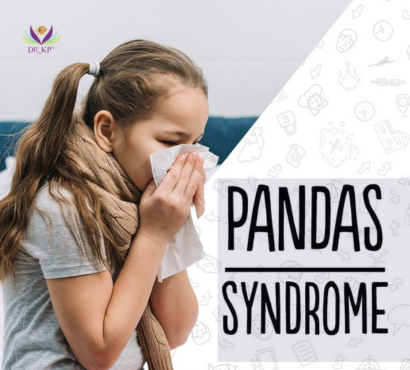PANDAS stands for Pediatric Autoimmune Neuropsychiatric Disorders Associated with Streptococcal Infections. This rare disorder involves sudden onset of OCD, tics, anxiety, and behavioral changes in children—typically after strep throat or scarlet fever. Recognition can be low, even in Western countries. In India, increasing awareness is vital to help families access timely investigation and treatment.
What Makes PANDAS Unique?
It’s an autoimmune reaction—antibodies meant to fight Strep bacteria mistakenly attack the brain (basal ganglia), altering behavior. It’s different from typical OCD—PANDAS is abrupt and occurs after infection.
Common Symptoms
| Highlight | Description |
| Blinding OCD thoughts or rituals | Extreme sudden OCD |
| Tics or involuntary movements | Facial or shoulder jerks |
| Anxiety or mood swings | Panic, irritability |
| Sudden separation anxiety | Often after infection |
| Bedwetting relapse or school changes | |
| Sensitivity to light or smell |
Symptoms appear quickly—usually within days or weeks after strep infection.
Why Parents Often Miss It
- Onset is sudden and confusing
- Strep infections may have been mild or unnoticed
- Symptoms overlap with other mental health issues
Under the Hood: Pathophysiology
- Post-strep immune response
- Antibodies from infection cross-react with brain regions, especially basal ganglia
- Imaging (MRI) may show inflammation
Medical consensus on PANDAS remains evolving.
Diagnosis
- Clinical evaluation by a pediatric neurologist or psychiatrist
- Evidence of strep exposure (throat swab or blood test for antistreptococcal antibodies)
- Exclusion of other causes: Pediatric Acute-onset Neuropsychiatric Syndrome (PANS), Tourette’s, etc.
Optional imaging helps rule out other diseases.
Treatment Plan
A. Antibiotic therapy
- Immediate antibiotics clear lingering strep
- Prevent recurrent infection
B. Anti-inflammatory / Immunomodulatory
- NSAIDs (ibuprofen), steroids for brain inflammation
- IVIG or plasmapheresis in severe cases
C. Psychiatric support
- Cognitive Behavioral Therapy (CBT) adapted for sudden-onset OCD
- Selective serotonin reuptake inhibitors (SSRIs) with caution
D. Support & Education
- Parents and teachers must understand variability
- Structured routines and stress management help
Prognosis
- Many children improve with early treatment
- Some experience relapses during infections
- Long-term CBT and occasional antibiotic prophylaxis may help prevent recurrences
PANDAS is rare—but dramatically disruptive. With growing recognition and collaboration among healthcare providers, school, and family, children can recover and resume healthy development. Early awareness matters. Share this info and spread the word among parent circles.
FAQs
Q1. Is PANDAS the same as OCD?
No—PANDAS is sudden-onset OCD and tics linked to a strep infection, not gradual like typical OCD.
Q2. Can antibiotics cure PANDAS?
Antibiotics reduce strep, easing inflammation and symptoms—especially if started early, but psychiatric support is often needed too.
Q3. Should schools be notified if a child has PANDAS?
Yes. Teachers should be aware, so they can support the child’s routines, destigmatize sudden behavior changes, and cooperate with treatment plans.
When to Seek Help
If a child (especially 3–13 years) develops sudden OCD, tics, or mood swings after an infection, consult a pediatric neurologist or immunologist. Early action leads to better outcomes.

